Designing a Vision for the Nantucket Whaling Museum
Two days before an architecture studio class presented designs that could help lay the foundations for renovations at a historic New England site, they were hard at work to meet the deadline
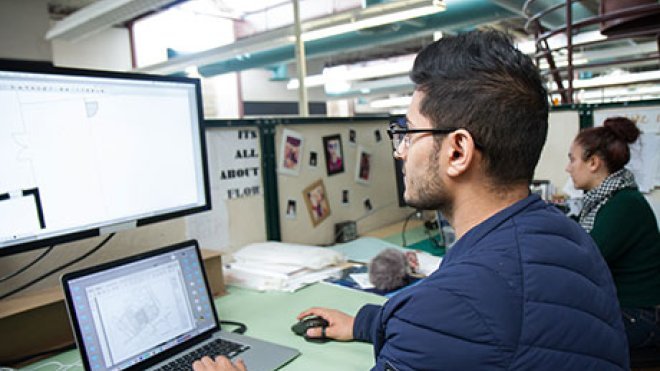
BRISTOL, R.I. – In the School of Architecture, Art and Historic Preservation’s Samsung Design Studio, amid scattered chatter, friendly banter and students working, there is an underlying feeling: Focus.
The design studio – made up of 375 workspaces, one for every architecture student – is where students work on projects, assignments, or have studio-based courses. This includes the 13 architecture students in Associate Professor of Architecture Robert Dermody’s 413 Advanced Architecture Studio.
On a late Wednesday afternoon in early spring, these students are sitting at their workstations in a corner of the design studio. They are working diligently on design proposals that could help reshape a historic New England site.
As part of a Community Partnerships Center project, Dermody’s 413 studio course is working with the Nantucket Historical Association to create a vision project for what an expansion and reorganization of the whaling museum could look like.
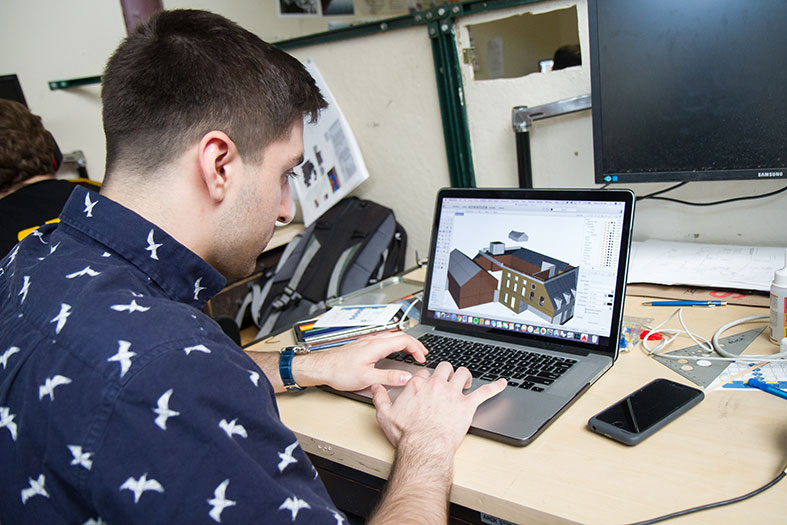
Students have researched Nantucket History, architecture restrictions in Nantucket and even spent two days on the Southern Massachusetts island documenting and analyzing the museum and site. Students also met with staff from the Nantucket Historical Association, including its executive director, on what they hope comes from the project.
Now they have two days before a major checkpoint in the project: Presenting their schematic designs to a panel of outside critics – including representatives from the Nantucket Historical Association – and RWU experts for review.
As the Friday nears, students are focused on meeting their deadline.
In a cubicle of four students, Sarah Connor ’18 puts the finishing touches on her designs. Connor says the research and speaking with stakeholders has provided students experience engaging with real-clients. That experience has helped her design a proposed addition to the museum which stays true to the spirit of Nantucket architecture.
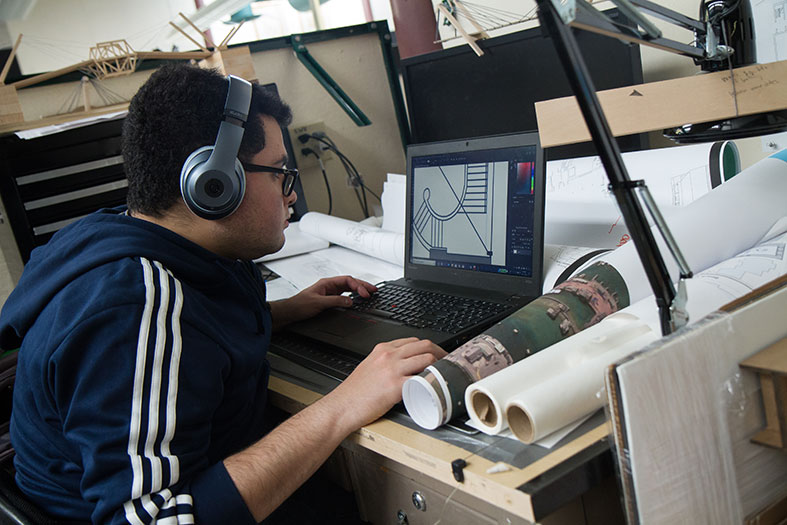
Sitting behind Connor is Alfredo Rodriguez ’18, who’s working to get all his designs in a digital design format. Rodriguez prefers designing by hand. Using AutoCad and Adobe Creative Suite – among the software and advanced applications SAAHP provides all students – Rodriguez makes efficient progress creating his digital designs.
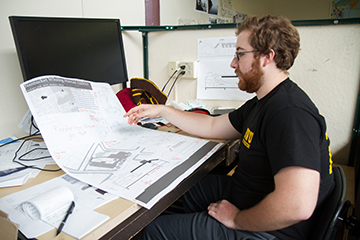 Next to Rodriguez is Matthew Sherer, a junior. He is proposing a reorganization of the museum which moves the gift shop closer to the entrance of the museum. Accessibility of the gift shop was something he noted when visiting the museum and speaking with staff there. In his designs, the gift shop is “always present,” he said.
Next to Rodriguez is Matthew Sherer, a junior. He is proposing a reorganization of the museum which moves the gift shop closer to the entrance of the museum. Accessibility of the gift shop was something he noted when visiting the museum and speaking with staff there. In his designs, the gift shop is “always present,” he said.
In the next cubicle sits two students, Bader Al Gasem ’18 and Chelsy Luis ’19. Luis is working on digital renderings of an addition to the museum building. The renderings make the building “seem like it's already there, like it’s something that can happen,” she said.
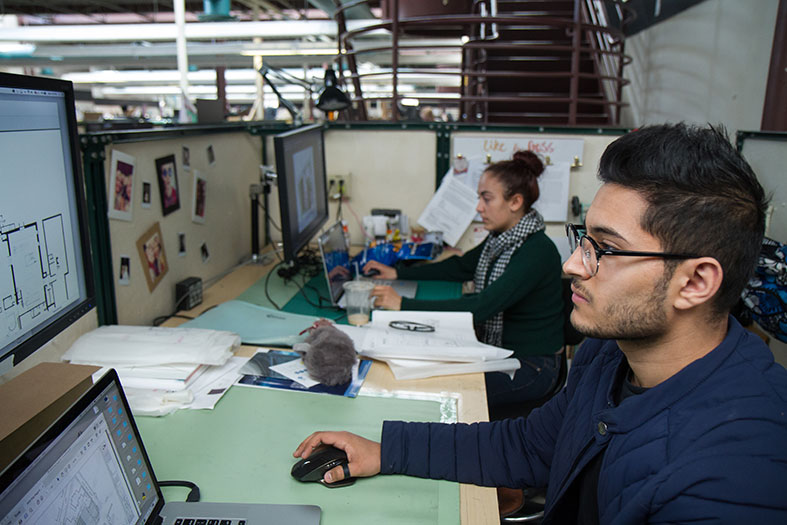
Across a small walk space, Julia Collopy ’19, plans what she will say during her presentation on Friday, something that all the students are thinking about as they work to finish.
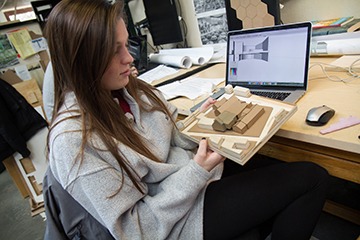
When Friday comes, students present their proposals to eight reviewers. Reviewers included practicing architects, representatives from the Nantucket Historical Association and guests from RWU.
The student designs show that the work happening on a small Bristol campus can have impacts around the greater community.
At RWU, we develop Civic Scholars who believe in community-engaged work. That’s why we commit to providing every student an opportunity that empowers them to put their knowledge and skills to the test solving real-world problems and creating meaningful change with community partners. Learn more about the Civic Scholars program and how to help us reach our goal of every student participating in civic scholarship.